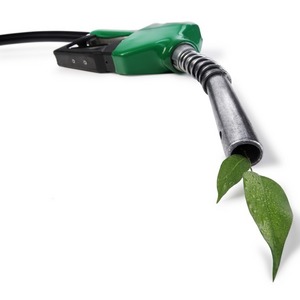New committee working to ensure Canada's renewable fuels future

March 19, 2013
BY Canadian Renewable Fuels Association
The Canadian Renewable Fuels Association has announced a new committee and classification of membership to advance next generation biofuels in Canada. The new committee and its members represent leaders in advanced biofuels with their cutting edge technologies and first-of-kind projects.
In Canada today, next generation renewable fuel companies are in the process of commercializing exciting new technologies that that can produce biofuels from forestry and agricultural residues, non-recyclable municipal waste, and special purpose energy crops.
"Canada is building on the success of its established biofuels industry to create a new wave of biofuels facilities that will deliver significant economic and environmental benefits", said CRFA President W. Scott Thurlow. “However, to realize Canada’s full green energy potential, programs and policies that spur innovation and foster investment are essential."
Advertisement
Advertisement
One such program is the NextGen for Biofuels Fund administered by Sustainable Development Technology Canada which attracts private investment for the commercialization of the new generation of biofuels technologies following their development, testing, and demonstration. The CRFA supports preserving the current funding available in the NGBF through SDTC and maintaining the existing eligibility criteria for applicants.
The inaugural members of CRFA’s Next Generation Biofuels Committee are:
Enerkem, a Quebec-based company, is developing municipal solid waste-to-biofuels projects in Edmonton, Alberta, and another one in partnership with GreenField Ethanol in Varennes, Quebec.
Advertisement
Advertisement
Inbicon, a Denmark-based company, focuses on the production of ethanol from agricultural residues.
Mascoma, a U.S.-based company, is developing a project in Drayton Valley, Alberta, utilizing its low-cost proprietary Consolidated BioProcessing technology for the conversion of biomass into cellulosic ethanol, xylose, isopropanol and green electricity.
Related Stories
The U.S. Energy Information Administration maintained its forecast for 2025 and 2026 biodiesel, renewable diesel and sustainable aviation fuel (SAF) production in its latest Short-Term Energy Outlook, released July 8.
XCF Global Inc. on July 10 shared its strategic plan to invest close to $1 billion in developing a network of SAF production facilities, expanding its U.S. footprint, and advancing its international growth strategy.
U.S. fuel ethanol capacity fell slightly in April, while biodiesel and renewable diesel capacity held steady, according to data released by the U.S. EIA on June 30. Feedstock consumption was down when compared to the previous month.
XCF Global Inc. on July 8 provided a production update on its flagship New Rise Reno facility, underscoring that the plant has successfully produced SAF, renewable diesel, and renewable naphtha during its initial ramp-up.
The USDA’s Risk Management Agency is implementing multiple changes to the Camelina pilot insurance program for the 2026 and succeeding crop years. The changes will expand coverage options and provide greater flexibility for producers.
Upcoming Events










